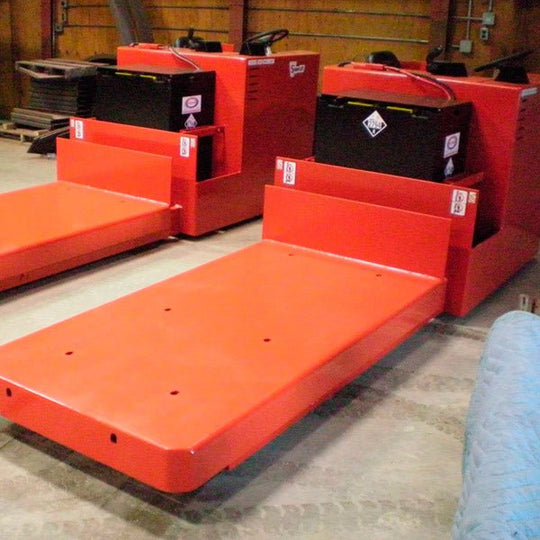Truck Platform: Enhancing Efficiency and Productivity in Material Handling
Optimizing the material handling process in this industrial landscape is crucial to meet the current market demand. Using advanced material handling equipment streamlines the operation and positively impacts productivity. Truck platforms have emerged as an indispensable tool in various industries providing a cost-effective and efficient solution for transporting goods within the warehouse, factories, and distribution centers. This post will inform you about the platform trucks, exploring their benefits, versatility, and how they can enhance efficiency in material handling.
The versatility of truck platforms
Platform trucks, also known as utility carts or hand trucks, are available in various shapes and sizes to suit material handling needs. They mainly consist of a flat, sturdy platform with four wheels for easy maneuverability. Some models also have adjustable handle heights, collapsible sides, breaks, and non-slip surfaces. Due to their adaptability, platform trucks have become ideal for transporting a wide range of items like boxes, crates, heavy equipment, and delicate materials.
Maximizing material handling efficiency
Since every industrial and warehouse operator wants to maximize material handling efficiency, they find platform trucks are the best equipment to invest in. These trucks allow the workers to move multiple items at once, reducing the number of trips required to transport goods. This saves time and minimizes the physical strain employees would get while handling heavy materials manually. Plus, platform trucks with load capacities have been tailored to meet specific requirements to ensure the materials can be transported swiftly and without delay.
Ergonomics and Safety
Ergonomics plays a crucial role in workplace efficiency and employee well-being. Platform trucks are designed with proper ergonomic considerations, providing easy-to-grip handles and smooth-rolling wheels that effectively reduce the strain on the operators. Plus, these trucks come with advanced models that incorporate shock-absorbing casters and noise-reducing material, making the material handling tasks more comfortable and safer for the workers.
Require less space to operate.
Space is a big concern in bustling warehouses. However, platform trucks are best for operating in tight spaces thanks to their compact design. Operators can navigate through narrow aisles and congested areas, ensuring smooth movement of goods within confined spaces. By efficiently using the available space, businesses can maximize the storage capacity and enhance overall operational efficiency.
Designed to meet the current industry-specific needs
Platform trucks are designed to cater diverse needs of different industries. For instance, in the hospitality sector, these are used to transport food and supplies efficiently, and in manufacturing plants, these trucks are used to facilitate the movement of raw materials and finished products. In retail environments, these trucks are also used for restocking the shelves and organizing merchandise. Due to this diverse use, platform trucks become an essential tool for optimizing the material handling processes across different sectors.
Cost-effective material handling solution
Investing in the platform trucks offers a solid, cost-effective material handling solution for businesses that want to improve their material handling efficiency. Since these are low cost, coupled with their durability and longevity, it ensures a high return on investment over time. Plus, the reduced physical strain on the employees can lead to a decline in workplace injuries, lowering healthcare costs and potential legal liabilities for the company.




Comments
Post a Comment